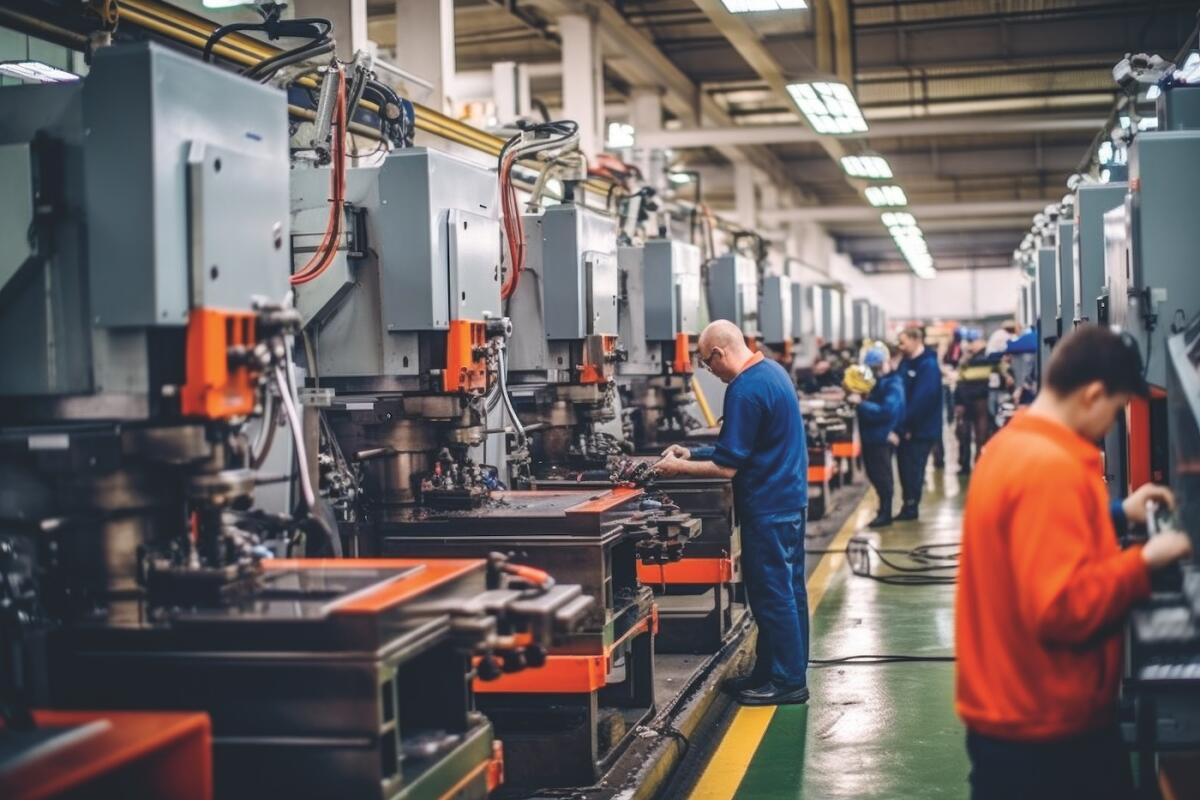Surge in Manufacturing Jobs Boosts Local Economies

A recent report published by the NAIOP Research Foundation, in partnership with Newmark, examines the surge of manufacturing jobs reshoring and the impact on industrial real estate, local communities and the broader economy.
“Forging the Future: Manufacturing Growth and Its Effects on North American Industrial Markets,” recently published by NAIOP, was written by Newmark’s Lisa DeNight, managing director, National Industrial Research, and Liz Berthelette, CRE, head of Northeast research and national life science research.
“Currently, the U.S. has less than five billion existing square feet of statistically-tracked manufacturing inventory. Comparatively, we are priming for market expansion that could equate to upwards of 10% of that entire stock – 500 million square feet – in the next decade alone. This unprecedented surge in North American facility announcements in recent years underscores the profound impact of global risk considerations and domestic manufacturing incentives on the industrial market,” said DeNight.
Berthelette continued, “The confluence of the CHIPS Act, Inflation Reduction Act and Infrastructure Investment and Jobs Act represents an amount of federal spending aimed at catalyzing industrial development that has few parallels in modern U.S. history – it would likely be appropriate to consider this a watershed moment for the sector.”
Reshoring is being driven by several factors including disruptions in global supply chains, tensions between the U.S. and China, and U.S. government spending on infrastructure and subsidies for industries associated with electrification, green energy and strategically important technologies.
“The volume of proposed manufacturing projects has the potential to reshape the U.S. manufacturing base, which currently measures approximately four billion square feet. Of the approximately 300 major manufacturing projects announced since 2020, just over half have publicly released details about the size of the facility. The announced projects could increase the size of the U.S. manufacturing building stock by 6-13% in just a decade,” according to the report.
“The impact of reshoring manufacturing will be dramatic and far-reaching in terms of industrial real estate, local and national tax revenues, increases in jobs and growth in regional and national economies,” said Marc Selvitelli, CAE, president and CEO, NAIOP.
According to Newmark’s advanced manufacturing report from September, “Manufacturing Momentum: Advanced Manufacturing Ascendancy in North America,” more than 300 major manufacturing facility announcements have been made across the U.S. since 2020, representing approximately $400 billion in pledged project investment and at least 210,000 new proposed jobs.
Among the key findings in the NAIOP Research Foundation/Newmark report:
• Firms in the high-tech, automotive, energy and bio-manufacturing sectors are making the largest investments in new manufacturing in the U.S. New construction is expected to expand the footprint of U.S. manufacturing space by 6-13% over the next 10 years.
• New manufacturing plants have been announced in every U.S. state, but investment has been concentrated in the Midwest and Southeast. Most new construction is expected to be in secondary or tertiary market locations that can offer adequate supplies of affordable energy and skilled labor.
• Most of the new manufacturing construction will be build-to-suit or owner-built, but demand will also exist for speculative manufacturing space. The expansion of domestic manufacturing is also expected to generate demand for logistics space and other types of commercial real estate in the communities surrounding new plants. The amount of additional demand generated by this construction will vary depending on a project’s sector, existing supply chains and local market dynamics.
• Several of the trends driving onshoring in the U.S. are also contributing to nearshoring of manufacturing to Mexico and Canada, with Mexico attracting the most nearshoring investment. This investment is generating demand for logistics and complementary manufacturing facilities along the U.S. border with Mexico, pushing down vacancy rates and spurring new construction near key border crossings.NAIOP elevates the commercial real estate development industry by providing advocacy, education, research and connections to foster business opportunities. In partnership with chapters, they connect and serve a diverse network of leading CRE professionals.